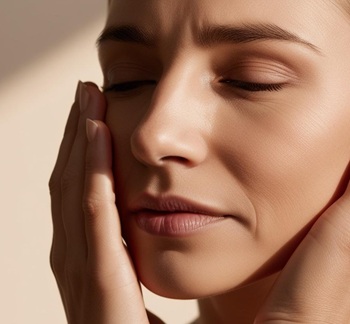Chicago Acupuncture for TMJ: A Natural Solution for Jaw Pain Relief

What is TMJ?
Temporomandibular joint disorder (TMJ) is a common condition that affects the jaw joint and surrounding muscles. It can cause pain, stiffness, clicking sounds, and even difficulty chewing. TMJ can be triggered by stress, teeth grinding (bruxism), poor posture, or injury to the jaw. While conventional treatments such as pain medications, physical therapy, and mouth guards can help, many people seek natural alternatives like acupuncture for TMJ relief.
How Does Acupuncture Help TMJ?
Acupuncture is a traditional Chinese medicine (TCM) practice that involves inserting thin, sterile needles into specific points on the body to restore balance and promote healing. When it comes to TMJ acupuncture treatment, the therapy helps by:
- Reducing inflammation: Acupuncture encourages blood circulation, which can help decrease swelling and pain in the jaw.
- Relaxing the muscles: It relieves tension in the jaw, neck, and surrounding areas that contribute to TMJ pain.
- Alleviating stress: Since stress and anxiety can exacerbate TMJ symptoms, acupuncture can provide relaxation and mental clarity.
- Improving joint mobility: Many patients report increased jaw movement and flexibility after acupuncture sessions.
What to Expect During an Acupuncture Session for TMJ
If you’re considering acupuncture for TMJ pain, here’s what a typical session may look like:
- Consultation: Your acupuncturist will assess your symptoms, lifestyle, and health history.
- Needle Placement: Fine needles will be inserted into strategic acupuncture points on the face, jaw, ears, and sometimes hands, legs, or feet.
- Relaxation Period: The needles remain in place for 20–40 minutes while you relax.
- Post-Treatment Sensations: Many patients experience immediate relief, while others notice gradual improvement after multiple sessions.
Acupuncture Points for TMJ Relief
Certain acupuncture points are commonly used for TMJ treatment, including:
- ST6 (Jiache): Located on the jawline, it helps relieve jaw tension and pain.
- ST7 (Xiaguan): Found near the TMJ joint, it helps reduce inflammation and improve mobility.
- LI4 (Hegu): Located on the hand, it’s known for reducing overall pain and stress, especially in the face and head.
- GB20 (Fengchi): Located at the base of the skull, it helps release tension in the neck and jaw area.
How Many Acupuncture Sessions Are Needed?
The number of treatments needed varies depending on the severity of your TMJ symptoms. Many people experience noticeable relief within 4 to 6 sessions, while chronic cases may require ongoing treatment. Your acupuncturist will create a personalized plan to address your specific needs.
Is Acupuncture for TMJ Safe?
Acupuncture is a safe, non-invasive therapy when performed by a licensed practitioner. Side effects are minimal and may include mild soreness or bruising at the needle sites. Always choose a certified acupuncturist with experience in treating TMJ.
Additional Tips for Managing TMJ Naturally
In addition to acupuncture, you can incorporate these natural remedies for better jaw health:
- Massage and stretching exercises to relieve jaw tension.
- Heat or cold therapy to reduce inflammation and pain.
- Stress management techniques like meditation and deep breathing.
- Avoiding hard or chewy foods to prevent jaw strain.
Conclusion
Acupuncture is a highly effective, natural approach for TMJ pain relief. By targeting the root causes of discomfort, acupuncture helps restore balance, reduce pain, and improve jaw mobility. If you’re struggling with TMJ symptoms, consulting a qualified acupuncturist may be the key to finding lasting relief.
At our Chicago Loop acupuncture clinic, we have many years of experience treating TMJ disorder with acupuncture and other therapeutic modalities. We have helped many people with TMJ have reduced pain and better quality of life. Contact us to schedule an appointment with one of our board certified Chicago acupuncturists and start feeling better today!
